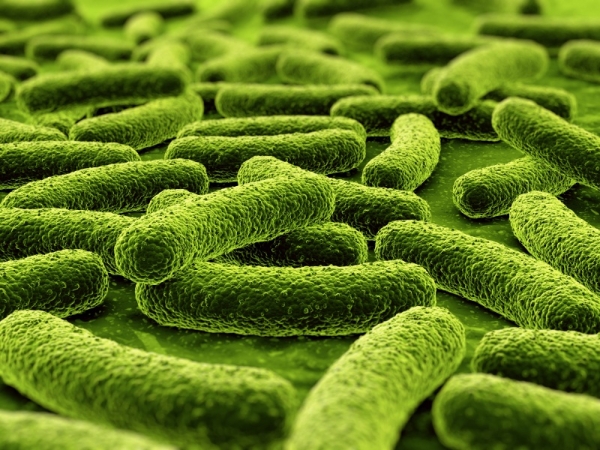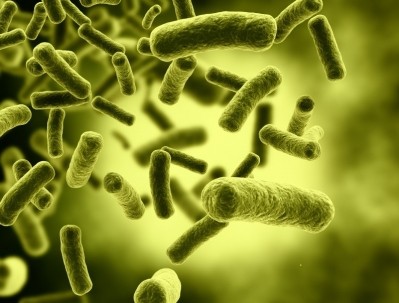Prebiotics improve gut microbiota in obese kids: Study

Researchers from China, France, Germany and the UK found that children with Prader–Willi syndrome (PWS) – a genetic condition that predisposes them to obesity – had similar microbial populations as children with ‘simple’ obesity caused by their lifestyles.
When the children were fed a diet rich in non-digestible but fermentable carbohydrates (prebiotics) their gut microbiota shifted to display greater levels of beneficial bacteria, while toxin-producing bacterial types were decreased.
“The dietary intervention in this study shifted the metabolism in the gut microbiota from fermenting proteins and fats to carbohydrates, corrected the dysbiosis of the gut microbiota, which in return may have contributed to alleviation of metabolic deteriorations in genetic as well as simple obesity,” wrote the researchers in EBioMedicine.
The intervention, which included a reduction in calorie intake of 30% for all the children, also produced significant body weight loss, with the ‘simple’ obese children experiencing an average 9.5% reduction from their initial bodyweight, while PWS children experienced an average body weight loss of 7.6%.
Gut health and obesity
The study adds to emerging body of science supporting the effects of gut microflora on metabolic factors and obesity.
A 2005 study by Jeffrey Gordon and his group at Washington University in St. Louis indicated that obese mice had lower levels of Bacteroidetes and higher levels of Firmicutes, compared with lean mice.
One year later and Dr Gordon’s reported similar findings in humans: The microbial populations in the gut are different between obese and lean people, and that when the obese people lost weight their microflora reverted back to that observed in a lean person, suggesting that obesity may have a microbial component (Nature, Vol. 444, pp. 1022-1023, 1027-1031).
A more recent paper from the same group in Science Translational Medicine (Vol. 3, 106ra106) reported that ingestion of probiotic bacteria produced a change in many metabolic pathways, particularly those related to carbohydrate metabolism.
The new study assessed the potential of prebiotic fibers to influence the gut microbiota in obese children. “Our study shows that dietary modulation of the gut microbiota contributes to the alleviation of metabolic deteriorations in both PWS and simple obesity cohorts, suggesting a common etiological role of dysbiotic microbiota for disease progression, regardless whether the obesity is genetically predisposed or simply diet-induced,” wrote the researchers, led by Prof Liping Zhao from Shanghai Jiao Tong University.

‘Proof of principal’
The researchers recruited 38 obese children (17 with PWS) and assigned them a diet rich in non-digestible carbohydrates. The children consumed three different formulas per day for 30 days (PWS children stayed on the intervention for 90 days).
The first formula contained ingredients such as adlay, oat, buckwheat, white and red bean, yellow corn, soybean, yam, peanut, lotus seed, and wolfberry. The second formula contained bitter melon (Momordica charantia) and oligosaccharides. The third formula contained soluble prebiotics, including Fibersol-2, fructo-oligosaccharides and oligoisomaltoses, stated the researchers.
Using metagenomics and metabolomics techniques, the researchers found that the gut microbiota of the children were similar for both PWS and ‘simple’ obesity, and that the intervention shifted the bacteria in their guts to a more favorable profile, dominated by Bifidobacterium spp.
“Our multi-omics-based systems analysis indicates a significant etiological contribution of dysbiotic gut microbiota to both genetic and simple obesity in children, implicating a potentially effective target for alleviation,” they wrote.
The researchers also performed a ‘proof of principal study’ whereby they transplanted gut microbiota from one PWS child sampled before or after the intervention into germ-free mice and found they induced different responses. This indicated that gut microbiota of the PWS child before the intervention promoted gut inflammation and fat accumulation, compared to the post-intervention gut microbiota, said the researchers.
“Thus, dietary modulation of gut microbiota may become a promising strategy for being integrated into the management of metabolic diseases.”
Source: EBioMedicine
Published online ahead of print, doi: 10.1016/j.ebiom.2015.07.007
“Dietary Modulation of Gut Microbiota Contributes to Alleviation of Both Genetic and Simple Obesity in Children”
Authors: C. Zhang, A. Yin, H. Li, et al.















